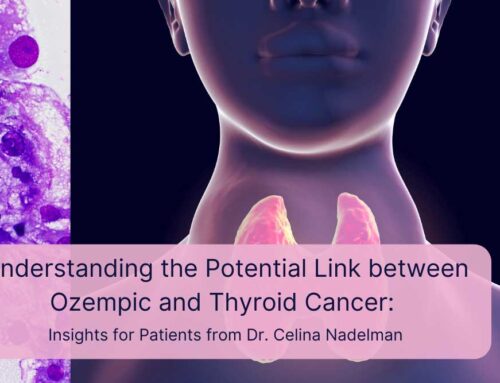What to Expect During an FNA Procedure
Having a biopsy can be a frightening and stressful experience. Any type of medical procedure is enough to give most people the nerves; however, waiting for the results of the biopsy can add even more stress. As opposed to other types of biopsies, a fine needle aspiration—also known as an FNA—is a non-invasive and relatively painless biopsy that allows you to return to your normal routine soon after. Additionally, if there is a lab onsite, the lab will be able to provide quick results to your referring doctor.
FNA is a relatively simple process that uses a thin needle to extract tissue or bodily fluids for examination. Most often, FNA is done on the thyroid, head and neck, salivary gland, breast and lymph node
Usually there is no major preparation the night before the procedure. Oftentimes, you are asked to stop taking any medication that would thin your blood (ie Ibuprofen) 7-10 days prior to the FNA. When you arrive at Dr. Nadelman’s office, you will be shown to a treatment room and Dr. Nadelman will talk to you and take a focused history and physical exam. She and the sonographer will identify the area of concern using state of the art ultrasound, and note the lump’s imaging characteristics. After consenting you, your skin will be prepared by cleansing with an antiseptic and marking where the biopsy will take place. If you are not allergic, a local anesthetic, such as Lidocaine, will be injected superficially over the lump to numb the skin and surrounding tissue.
The procedure itself is relatively painless. The needle used for the FNA is extremely thin. It is thinner than a needle used to draw blood. Dr. Nadelman will insert the needle, as if pushing a straw through sand, and via this “pushing” action, a small core of cells is obtained. This is then ejected out of the needle with a syringe onto a glass slide, smeared and fixed. If the lump is cystic or unyielding, suction may be used to dislodge the cells. One or more slides may be air dried and stained immediately. As Dr. Nadelman has a microscope in the procedure room and is a cytopathologist with a laboratory on site, she is able to review that slide to ensure that she gets enough adequate tissue to make a diagnosis later.
Due to this set up, results of the test can quickly be available to your referring doctor—sometimes within a day’s time. This allows patients to receive the fastest and most accurate results. It will also help ease the anxiety that is often felt when waiting for the results.
Pain is usually not a problem after an FNA procedure, but if you experience soreness, icing the area after the procedure or over- the- counter medication, such as acetaminophen, may alleviate the discomfort. If you notice a little bruising or swelling around the area, a warm towel will relieve it in the days following the procedure. However, FNA is a minimally invasive procedure and you should be able to return to your normal routine soon.




